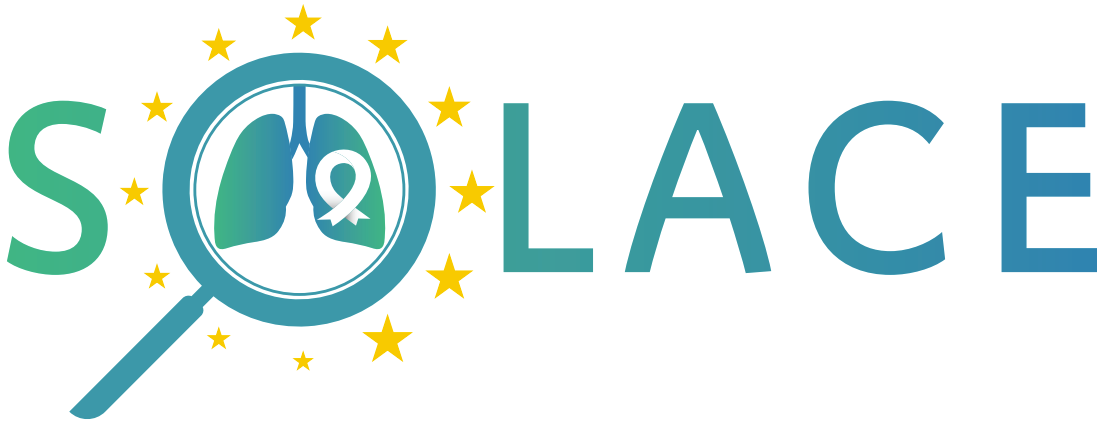Lung cancer screening
Lung cancer screening is designed for people who feel well but have a higher risk because of their age and smoking history. You don’t have to wait for symptoms to appear.
Screening is usually recommended if you are between 55 and 74 years old and you smoke now or used to smoke, with a history of at least 20 pack years – this means smoking the equivalent of one pack of 20 cigarettes a day for 20 years. Read more about eligibility for lung cancer screening.
Even if you feel completely healthy, getting checked helps find any problems early, when treatment is more likely to work well.
It is understandable to worry about radiation, but the amount used in a low-dose CT scan like those used for lung cancer screening is very small.
The benefits of finding lung cancer early far outweigh any small risks from the scan itself.
Lung cancer screening does much more than just look for cancer. A low-dose CT scan can spot very small changes in your lungs before you feel unwell.
Research shows that lung cancer screening using low-dose CT scan can save one life for every five that might have been lost without screening people who are at a higher risk. This is because screening can detect cancer at an early stage, when treatment is more likely to work well.
Screening can also find other lung conditions such as chronic obstructive pulmonary disease (COPD), emphysema or pulmonary fibrosis. Knowing about these early means you can get treatment and support to help you feel better and protect your health.
In some countries, lung checks are even offered alongside other screening, such as breast cancer screening, so you can take care of multiple aspects of your health at once without extra appointments.
It is natural to feel worried about any possible diagnosis, but finding lung cancer early makes a big difference. When it is caught at an early stage, treatment is more likely to work well, and many people go on to live well after treatment.
Screening can also pick up changes that are not cancer, which can help reassure you and ease health worries. Whether something serious or harmless is found, you will have more information and more choices about what happens next.
You are not to blame for being at higher risk. Tobacco products are highly addictive, and for decades the tobacco industry has used aggressive marketing to encourage smoking.
Screening is not about judgment or blame. It is about looking after your health and taking a positive step for yourself.
If you would like to quit smoking, screening can also connect you with support and resources to help you stop. But whether you smoke now or used to, you deserve care, respect and the chance to be screened.
Lung cancer screening is safe, proven and designed to help people at higher risk, even if you feel completely healthy. It can save lives by finding cancer early, when treatment works best.
If you have any questions or feel unsure whether screening is right for you, talk to your doctor or nurse. They can help you understand your options and feel confident about taking the next step.
Lung cancer
Advances in research mean that new treatments are coming along all the time and have helped to increase how long people with lung cancer live for.
How long an individual person will live depends on many things.
If the cancer is caught early enough it may be curable, and even if it is not curable, it is still treatable and many people live with lung cancer for several years.
Although smoking is the single greatest risk factor for cancer, not all people who develop lung cancer have smoked.
Exposure to second-hand smoke and other substances such as air pollution (including radon gas) increases the risk. Some people can also develop the disease without any known risk factors.
The number of people who have developed lung cancer and have not smoked varies in different studies, with the figures being 10% in one and 28% in a recent study.
Molecular testing, also known as biomarker testing, may help to find out more about the type of lung cancer tumour you have and help decide which treatment is most likely to work for you (such as targeted therapies).
If you have NSCLC (non-small cell lung cancer), then molecular testing is most likely to be recommended. Sometimes there is a reason why molecular testing may not be suitable for you, so ask your physician to explain if this is the case.
The first signs of lung cancer are often a cough that does not go away and shortness of breath. If you have a long-term cough (that lasts for more than 3 weeks), get it checked out.
Lung cancer is more common in older people (in their 60s and 70s, but it can also occur in people at a much younger age and is diagnosed in people of all ages, e.g. carcinoid tumours can affect young people. This is especially true for oncogene-driven lung cancers.
